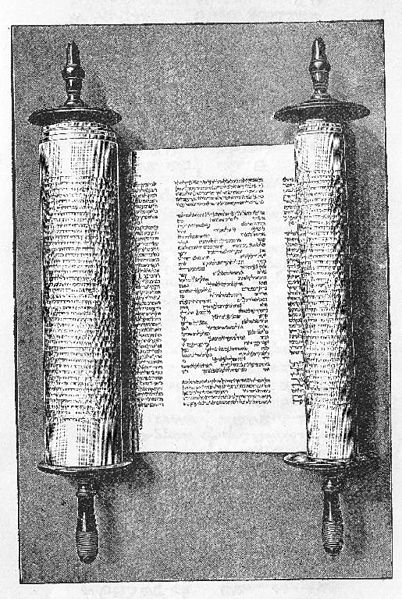Israel's Rightward Turn
The hard right in Israel rises again.
 Perhaps Shimon Peres's worst mistake was back in November 1995, when he failed to throw the book at – or even mildly harrass – the coterie of right-wing leaders and rabbis who had allegedly incited the assassination of his predecessor, Prime Minister Yitzhak Rabin.
Perhaps Shimon Peres's worst mistake was back in November 1995, when he failed to throw the book at – or even mildly harrass – the coterie of right-wing leaders and rabbis who had allegedly incited the assassination of his predecessor, Prime Minister Yitzhak Rabin.
For months, right-wing politicians, including Ariel Sharon, had painted Rabin as a traitor for having embarked on the Oslo peace process with the Palestinians and handed over territory, in Gaza and the West Bank, and weapons to Yasser Arafat's PLO. Several rabbis connected to the settler movement had reportedly given spiritual cover to the plotters, who included the gunman Yigal Amir, by ruling that Rabin was subject to the halachic laws governing one who handed over Jews or sovereign land to the enemy, din moser (the judgement of one who hands over a Jew, or, by extension, Jewish land, to gentiles) or din rodef (the judgement of one who chases a Jew). For both, a death sentence was seen as apt. Amir later hinted that he had consulted one or more rabbis before embarking on the assassination.
But Peres, taking over from Rabin at that chaotic time, failed to move against those who had paved the way for the assassination, and the chance to subordinate the hard right's spiritual guides to Israeli law was missed (the statute books include laws against incitement to murder). Within months, Peres lost the premiership to the tyro politician Netanyahu in general elections that all had assumed would be a walkover for Labor.
Last weekend, the police briefly arrested and interrogated two alleged spiritual miscreants, Dov Lior, who was already a prominent settler movement rabbi in the Rabin days, and Yaakov Yosef, the son of Ovadia Yosef, the spiritual leader of the Shas Party and, by extension, of Israel's Sephardi ultra-orthdox community.
Lior is currently the municipal rabbi of Kiryat Arba, the Jewish suburb of Hebron and bastion of Gush Emunim (the Bloc of the Faithful), which orchestrated the expansionist settlement movement in the West Bank (Judea and Samaria) since the early 1970s. Lior and Yosef had refused to respect a police summons for questioning after they had given a rabbinic stamp of approval to Torat Hamelekh (the thinking of the king), a book that appeared two years ago that discusses halachic rulings concerning the killing of goyim (i.e., in context, Arabs). The book is emblematic of the drift rightward of the Israeli public, and of its racist fringe. Many Israelis, and the country's judicial authorities, see the book as an incitement to violence.
The book was written by Itzik Shapira, the rabbi of Yitzhar, one of the more extreme national-religious settlements in the West Bank. A declaration of "approval" by three more senior rabbis, including Lior and Yosef, was disseminated with the book. The third senior rabbi, Yosef Ginsburg, was questioned a year ago; Lior and Yosef, declined the police summons, arguing that the judicial system and police had no authority over halachic issues.
This time, both the 76-year-old Lior and Yosef were briefly questioned, cautioned and released without charges, triggering small anti-government demonstrations in Jerusalem. Netanyahu said in Sunday''s cabinet meeting that Israel is a country "run by law, and no one is above the law."
Lior has been one of the most prominent supporters of insubordination by IDF troops and police ordered to remove settlers from West Bank outposts. He has also declared that the Torah – the book of Jewish religious law – trumps the state's (secular) law.
Lior was born in Eastern Europe and by luck evaded the Nazis. In 1947 he was an 11-year-old passenger on the "1947 – Exodus from Europe" (more commonly known as the "Exodus"), the Haganah illegal immigrants ship that tried to run the Royal Navy's blockade of Palestine. After it was caught by a British destroyer, Lior was among those the British shipped back to Europe, though he managed to make his way to Palestine a few weeks before Israel was declared.
The 64-year-old Yosef, who is the rabbi of the Givat Moshe neighborhood of Jeruusalem and head of the Chazon Yaakov (vision of Jacob) yeshiva, is a former Shas Knesset member. But in recent years he has broken with his father and adopted a far harder line on halachic and political issues. (Ovadia Yosef has occasionally stated that giving up territory for peace is halachically permissible. His son Yaakov is opposed to handing over areas of the Land of Israel to Arabs.)
Several right-wing MKs called for the resignation of the police minister (a member of Avigdor Liberman's Yisrael Beiteinu Party and Israel's two chief rabbis protested against the arrest.
Over the years, Lior's name has been linked to Yigal Amir's. Lior has supported Amir's release from prison. In 2010 the rabbi married Yigal's brother, Amitai, to Avital Trimbobler, the daughter of Larissa Trimbobler, who was secretly married to the jailed Yigal Amir in 2004. Yigal and Larissa had a child together in 2007.
Lior's arrest and interrogation, however brief, is a step in the right direction and ironic, on a number of levels. It takes a right-wing government to curb extreme right-wingers (Begin successfully uprooted the Sinai settlers as part of the implementation of the peace treaty with Egypt; Ariel Sharon pulled out the IDF and evacuated the settlers from the Gaza Strip). But on a deeper level, it is precisely such a government, which has given anti-Arab racists their head and in a broad way allowed the genie out of the bottle, that is trying to shove it back in, at least on this minor but symbolic legal issue.
